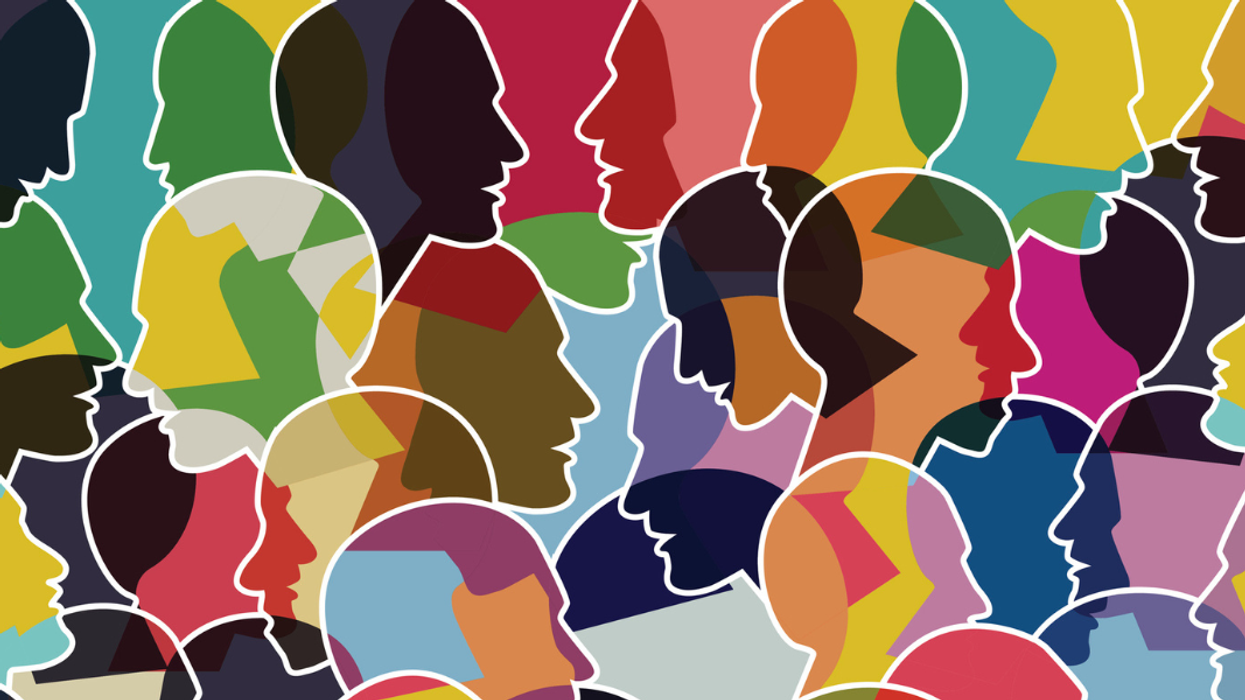Nevins is co-publisher of The Fulcrum and co-founder and board chairman of the Bridge Alliance Education Fund.
Recently at the invitation of a friend I went to dinner at a rabbi’s house to start Shabbat, the Jewish observance every week beginning at sunset on Friday evening and ending after dark on Saturday.
I am Jewish by birth but have not been to a temple for many years. I am not a religious Jew. While I have close ties to my heritage, I think of myself more as a humanist than a Jew.
I very much enjoyed the dinner at the rabbi’s house and reflected later on a statement he made in response to my comment about not being a religious Jew. He spoke of a concept within Judaism of no labels, and that labels are made for suits and should not be used to define us as Jews. He was referring to the concept that oftentimes Jews judge each other as to whether they are Reform, Conservative or Orthodox Jews, or may judge others on how often they go to synagogue as a measurement of whether they are “real” Jews. He went on to explain that regardless of who we are and the extent of our Jewish observance, and that while on the surface we might look or be very different from each other, underneath we’re all Jews and all the same.
I was struck by his comment because a similar concept of no labels, but applied in a very different fashion, is the foundation of a principle that drove me to devote my time and energies to unite Americans as a people. I do this as the chairman of the board and cofounder of The Bridge Alliance, a coalition of organizations with over 100 members working together to strengthen our democracy through political reforms and also to heal the divides that separate us as a society.
My life changed about 11 years ago when I heard the term no labels but used not in terms of religion but in a secular manner. I became very involved with an organization called No Labels, a bi-partisan organization that at the time demanded that American leaders and citizens alike declare their freedom from the anger and divisiveness that are ruining our politics and most importantly our country. They believe we must recommit to the fundamental beliefs that have historically united Americans and provide a common understanding of who we are and where we hope to go and to do so we must remove the political label we attached to each other.
And so I pondered how the Jewish perspective on no labels might apply, if at all, with the concept of no labels in terms of the America we live in.
How can Jews, Christians, Muslims and all religions, as well as Asians, Blacks, Hispanics, Native Americans and Whites honor and cherish their heritage and espouse the principles that bind them together while at the same time honoring and respecting the strong beliefs of others? Do terms like Chosen People used by Jews, or Black Power used by African Americans conflict with the concept of pluralism in America? I think not.
I believe that for our nation to fulfill its motto of E Pluribus Unum: Out of many, we are one, we must embrace our diversity — meaning diversity with regard to race/ethnicity, sex/gender, social identity, religion, ideology and age.
And I believe we can do so while at the same time honoring our own heritage. The two are not mutually exclusive and the path is not easy.
The mere discussion of justice, equity, diversity, and inclusion that should unite us instead more often divides us into our respective clans as tribalism grows in America. While I believe that our nation will be stronger if diversity becomes our operating system, and I believe that legislation can play some useful role, ultimately it is our hearts and minds that must lead us to the challenges that the diverse population of America presents to us.
How wonderful would it be if the cultural tradition of Shabbat, that I experienced recently, could be shared with others, and they shared their traditions with me. Sharing our respective traditions through storytelling, music, song, dance can help bridge the divide that separates us, and will start the healing process as we start to build connections and friendships with those different from us.
I researched a Jewish prayer mentioned at dinner, Shema Yisrael, a term that I had not heard for many years. Shema Yisrael prayer expresses belief in the singularity of God. Professor of classical rabbinic literature Reuven Kimelmansaid the Shema summons Jews to feel, "an all-consuming love of God."
"It's a love that is unreserved, all-demanding, at all times, in all places and in all circumstances," he said. "Nothing is excluded. Thoughts are to be focused, words are to be spoken, and deeds are to be done."
My dream is to extend Shema Yisrael to all of us. Let us remove all the labels between all of us and the deeds that are done by We the People. Only then will we be able to explore completely and freely, and who knows, we might embrace and even come to observe new traditions that become blended into our own values and traditions.


















 "On the Frontlines of Democracy" by Nonprofit Vote,
"On the Frontlines of Democracy" by Nonprofit Vote,

Trump & Hegseth gave Mark Kelly a huge 2028 gift